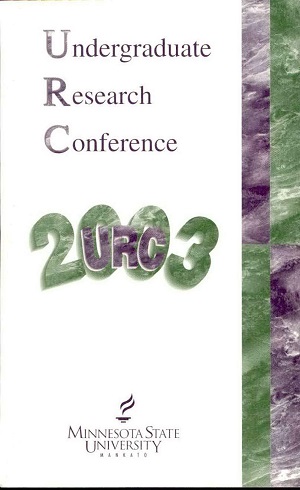Using Social Cognitive Theory to Predict Behavior
Location
CSU
Student's Major
Recreation, Parks, and Leisure Services
Student's College
Allied Health and Nursing
Mentor's Name
James Wise
Mentor's Department
Recreation, Parks, and Leisure Services
Mentor's College
Allied Health and Nursing
Description
The purpose of this study was to test a theoretical model where self-efficacy is hypothesized to influence people's behavioral intentions directly and indirectly through its effects on outcome expectancy. Data on self-efficacy, outcome expectancy, and intention, all related to jogging two consecutive miles, were collected from 115 college students enrolled in RPLS general education classes. As anticipated, path analyses indicated that efficacy had both a direct impact on intention and an indirect impact through its effects on outcome expectancy. The more efficacious people were, the more positive the outcomes they associated with jogging, and the surer they were they would jog. The model tested in this study holds potentially important implications for therapeutic recreation specialists (TRS). Based upon the model, TRS can increase the likelihood people will perform healthy leisure activities by developing interventions that lead to stronger self-efficacy and greater awareness of positive outcomes associated with the activities.
Using Social Cognitive Theory to Predict Behavior
CSU
The purpose of this study was to test a theoretical model where self-efficacy is hypothesized to influence people's behavioral intentions directly and indirectly through its effects on outcome expectancy. Data on self-efficacy, outcome expectancy, and intention, all related to jogging two consecutive miles, were collected from 115 college students enrolled in RPLS general education classes. As anticipated, path analyses indicated that efficacy had both a direct impact on intention and an indirect impact through its effects on outcome expectancy. The more efficacious people were, the more positive the outcomes they associated with jogging, and the surer they were they would jog. The model tested in this study holds potentially important implications for therapeutic recreation specialists (TRS). Based upon the model, TRS can increase the likelihood people will perform healthy leisure activities by developing interventions that lead to stronger self-efficacy and greater awareness of positive outcomes associated with the activities.




